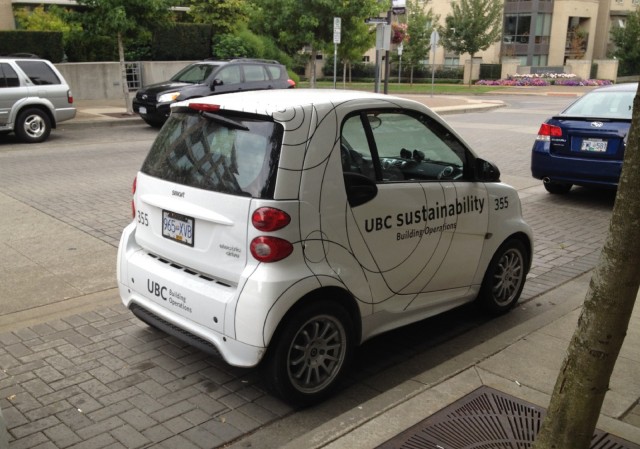British Columbia Restores Electric Car Purchase Rebates
- 01/09/2015
- Transport
- Posted by Tessa Romarez
- Leave your thoughts
In the third week of March, the Province of British Columbia declared that it is reviving its Clean Energy Vehicle (CEV) incentive program. This took effect in April 1.
The restoration of the program was the climax of several months long behind-the-scenes struggle made by electric car advocates throughout the province. This restoration program called Phase 2 basically restores the incentives provided for in Phase 1.
These electric car purchase rebates were allowed to expire in the spring of 2014 when the initial C$14.6 million or US $12 million allotted for vehicles and supporting infrastructure were depleted.
The initial funding was given by the Innovative Clean Energy Fund – a tax on hydrocarbons that constitutes a portion of the province’s carbon tax. This new program should be enough to double the numbers of 1,700 clean energy vehicles that are running on provincial roads.
This move should also increase the sales of EVs, which have risen only moderately after Phase 1 expired, even as sales shoot up in Quebec and Ontario, the places where the rebates are still extended.
An analysis of the situation revealed that during the implementation of the incentive program, the province of B.C represented approximately one-sixth the combined units of Volt and Leaf sales in Quebec and Ontario. This ratio fell down to 1 in 12 after the expiration of the incentive.
The Details of Phase 2
Phase 2 will be supervised by the Ministry of Energy and Mines, which is headed by Bill Bennett. In this program, clean energy vehicles qualify for point-of-purchase rebates of up to C $5,000 or US $4,000.
Vehicles run by hydrogen fuel cells are also eligible for C $6,000 or US $4,800. In addition, these rebates can be combined with the government’s SCRAP-IT program which offers drivers up to C $3,250 for car bought prior to 2000.
Although the insertion of fuel-cell vehicles will not sit well with a number of EV advocates, it should be remembered that Vancouver is a center for fuel research and development. Furthermore, a full 30 per cent of Metro Vancouver households reside in multi-unit housing such as apartments, condos and townhouses.
This condition poses wiring issues because of the shared garage situation vis-à-vis electric car charging stations. It is a potentially complex problem with regards to negotiations between tenants, landlords and condominium boards.
Fruits of Consistent Advocacy
There are many advocacy groups that convinced the government to bring back the incentives. But one group stood out among the rest – the Vancouver Electric Vehicle Association.
This group is led by Don Chandler, its government liaison officer. The association pursued a letter-writing campaign from club members. As a result related advocacy groups followed the association’s example and strongly expressed support for restoring incentives.
Eventually, the association’s persistence and professionalism led to the invitation to present its stand to the government staff in April 2014. It resulted in the restoration of the electric car purchase rebates that EV car buyers enjoyed prior to its deletion.

